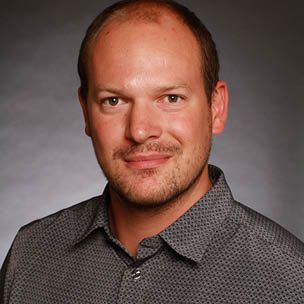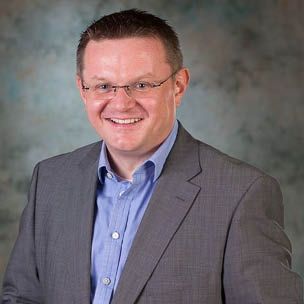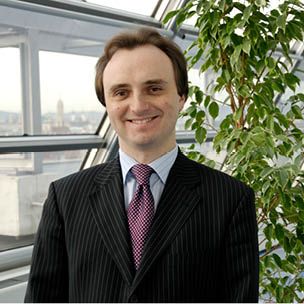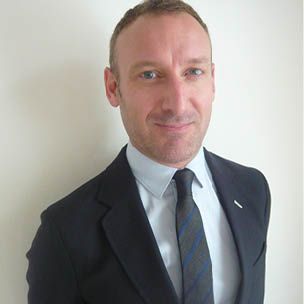Peter Gyurovszky is the Head of Legal for Ezpada, a group of companies active on the European wholesale energy markets. His legal career started with a Czech-based securities broker, Capital Partners, which was a member of the Prague Stock Exchange. Starting as a Subdealing Officer, Gyurovszky ultimately rose to Compliance Officer responsible for the Hungarian market. In what he describes as “taking a quick glance at the private practice world,” he worked for almost a year with Squire Sanders (now Squire Patton Boggs), then joined Ezpada.

Peter Gyurovszky, Head of Legal & Compliance at Ezpada
CEELM: You have been exposed to working both in private practice and in-house. Would you ever consider moving back to a law firm?
P.G.: I like to have an open mind in everything I do, so I can never rule out going back to a law firm. However, I know that I would miss the wide scope of areas which I have to cover as an in-house lawyer, meaning not just the legal perspectives of a certain contract or relationship, but also taxes, customs, and a full operational perspective. Therefore, if I am to move away from the in-house world, I would first consider consultancy.
CEELM: What drew you to the energy wholesale business?
P.G.: I think energy needs are, and in the future will continue to be, one of the main issues in society. I was interested in learning how this particular business operates from a legal practitioner point of view. That’s when Ezpada came into the picture. It allowed me to deeply explore not only the wholesale energy business but a wide range of financial businesses as well.
CEELM: Ezpada operates out of 4 offices: Zug/Switzerland, Prague/Czech Republic, Munich/Germany and Istanbul/Turkey — what connects these markets in your industry?
P.G.: First of all I must strongly stress the fact that, from a wholesale energy perspective, these markets are not very similar. They are all driven by different underlying forces and the overall variables which dictates the character of each of these markets vary significantly. What connects them is that we were able to understand these markets, adapt to them and have successfully operated in them for a considerable period of time.
CEELM: What types of legal work do you tend to outsource to external counsel?
P.G.: As was mentioned earlier, Ezpada operates in many markets in many countries. As a Czech-based lawyer, I am not able to have deep knowledge on legal matters in all of these countries. Therefore I use the services of external counsel mainly to get to know the basic principles of a foreign legal system and to identify the main local legal and regulatory threats. This is the first stage in every new country and, of course, as time goes by and legal environments change I need to periodically update my knowledge in this respect. The second area in which I absolutely rely on external counsel are dispute resolutions and different administrative proceedings. This area is so country-specific that good advice from external counsel is an absolute necessity.
CEELM: When picking the law firm(s) you are going to work with on a specific project, what are the main criteria that you look at?
P.G.: First I try to get a reference from some legal firms with whom I have previously worked and whom I trust, usually from neighboring countries. We also carry out our own internal research. Since energy law and energy trading regulation is a very specific area I prefer to hire law firms who’ve had previous experience with energy-related projects, even if I am looking for general corporate advice, for example. I feel that when a law firm has previously worked with another energy trader, or utility, it has a better understanding of what type of advice I need. I will not lie to you, these days fees is another huge criterion, and, in some cases, it is the decisive factor. My budget is tight and I need to find the best value for the money available.
CEELM: What would you identify as the biggest recurring challenge in your role at the moment?
P.G.: European regulations with respect to trading in financial derivatives as well as regulations on trading with physical electricity are developing at an enormous speed these days. We do not have a specific compliance department in Ezpada, as is customary in other trading companies or energy utilities. Therefore the challenge of keeping up to speed with current EU regulation is tremendous. While you have whole departments in other companies dedicated to this, it eats up about one third of my agenda in Ezpada, which is difficult to manage. This is from a compliance point of view. In terms of purely legal challenges, it is definitely contract management. The credit situation of companies in many EU countries is still not the best, meaning that careful drafting of bilateral contracts is essential. I am always trying to push our contract management to the next level by following current developments in contract management trends and very swiftly implementing them into our tailor-made contracts.
CEELM: What would you like to see changed from a regulatory standpoint in the near future and how would that impact your industry?
P.G.: I would very much like more clarity in EU regulation. It is clear that for example EMIR was not made primarily for energy derivatives, but the fact that it impacts them greatly creates many operational problems for us. So far I have to say that this impact is more negative than positive. It drove operational costs up, without any benefits so far. Personally, I believe that there will be benefits in the future, mainly more available data and the huge impact their analysis might have. There are some more regulations coming our way, again directed more towards the financial sector, and I strongly hope they will retain exemptions for companies which should have them. So far it looks promising.
CEELM: A year ago, THE buzz-word in the Czech market was the New Civil Code. To what extent did it affect your business and have things calmed down in the interim?
P.G.: The New Civil Code is the single biggest change in Czech private law in recent decades. It affected all parts of life, commercial as well as private. Ezpada had to adapt to these changes as well. Fortunately, as most of our business is linked to foreign legal orders, rather than Czech, our transition was easier. However I think that right now there is still a considerable amount of uncertainty regarding several issues. We don’t have enough relevant judicial doctrine to safely interpret many new provisions. I would again point out contract management, where we deal with transfer of titles, insolvency provisions, and other life cycle events of a contract, where we need to be one hundred percent sure what the outcome will be. This is not the case nowadays.
CEELM: On a lighter note, if you could choose to work in any of the four offices of the company, which would you pick and why?
P.G.: I would still pick Prague. It has a fascinating mixture of a very genuine cultural vibe and thriving business opportunities. I fell in love with Prague during my studies here and it still holds strong. If I am to move from Prague, it would be to one of the financial hubs, like London or Frankfurt.



